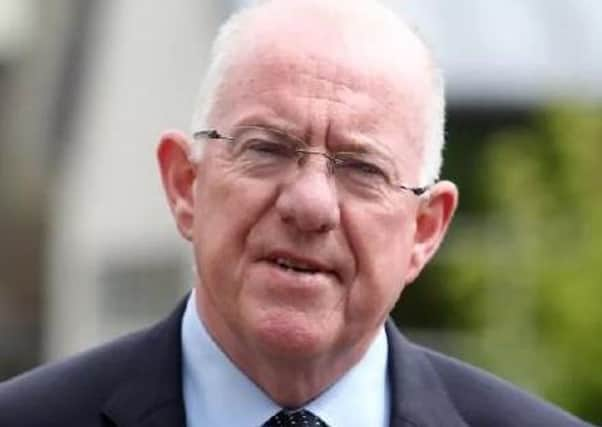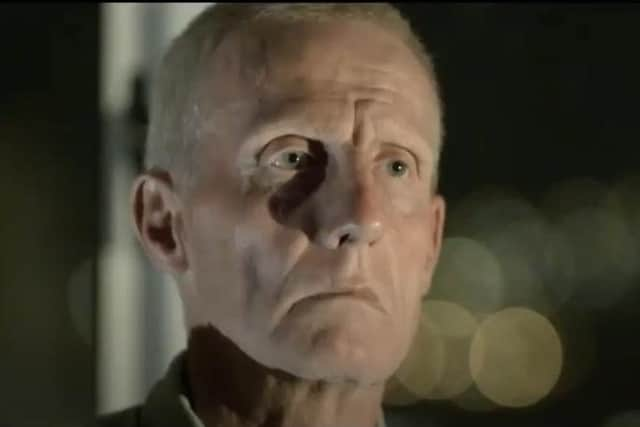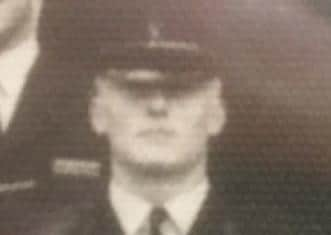Unquiet Graves: Former Irish justice minister questions RTE over ‘unbalanced’ content and due diligence


Charlie Flanagan has posed a number of questions to the state broadcaster about the documentary produced and directed by Sean Murray – the son of senior Sinn Fein strategist and former IRA member Sean ‘Spike’ Murray – including who funded its production.
The film deals with what later became known as the Glenanne series of loyalist murders in the 1970s.
Advertisement
Hide AdAdvertisement
Hide AdAs well as relying heavily on the testimony of former IRA member Paul O’Connor from the Pat Finucane Centre, it gives a platform to one of five former police officers who were discovered to be carrying out the sectarian attacks along with UVF terrorists.


John Weir, who was convicted of murdering Ahoghill man William Strathearn in 1977, makes a number of claims, including that British Intelligence encouraged the UVF to carry out mass murder at a Catholic primary school.
RTE’s decision to broadcast ‘Unquiet Graves’ on September 16, with no input from the police officers who brought Weir and his co-accused to justice, caused widespread anger.
During a Newstalk radio interview on Thursday, Laois TD Mr Flanagan said he has written to RTE, as well as Taoiseach Micheal Martin and the minister for communications, outlining his own concerns.
Advertisement
Hide AdAdvertisement
Hide AdIn the letter, Mr Flanagan states he has received complaints from viewers on both sides of the border expressing anger “at the lack of balance, obvious bias and unchecked partiality” of the programme.


He told Newstalk: “What background information or checks were undertaken by RTE in the form of due diligence?
“I am not an expert in film production but I did make some enquiries and these enquiries resulted in my being told that this film could have cost up to 400,000 euro to produce and make and I am wondering what due diligence RTÉ did in order to follow the money.”
Mr Flanagan added: “I was a solicitor before I entered politics. If somebody came into my office with a bag of money and said ‘I want to buy a house,’ the issue is not so much the purchase of the house ... the issue would be the money and where the money came from.”
Advertisement
Hide AdAdvertisement
Hide AdLast week, Sean Murray told the News Letter that his film was “privately funded” and “no political party made any contribution to the film”.
Mr Murray has also disputed the estimated £300,000 production cost, saying that most of those involved provided their services without payment.
“The film was a socially committed project and most of the crew who assisted in the making of the film done so on a voluntary basis, including myself,” he said.
Defending the decision to broadcast the film, RTE said: “Unquiet Graves was subject to editorial review within RTÉ prior to broadcast, including by our Editorial Standards Board.
Advertisement
Hide AdAdvertisement
Hide Ad“The programme draws on a number of sources, including an interview with John Weir. Mr Weir’s evidence has previously been assessed by An Garda Siochana and Mr Justice Barron, among others. Their assessment of his evidence is included in Mr Justice Barron’s report to the Joint Oireachtas Committee on Justice, Equality, Defence and Women’s Right in December 2003.”
In relation to RTE’s due diligence in relation to the source of the funding for the film’s production, the spokesman added: “RTÉ has no oversight of production budgets on acquired programmes, as our engagement with producers and/or distributors begins when the programme has already been completed.
“RTÉ acquires these productions on the basis of an editorial judgement and their suitability for transmission.”
• Two of the former detectives who investigated, charged and successfully prosecuted John Weir for murder broke a decades long silence following the RTE broadcast to explain that Weir failed to mention his damning allegations during interview or at his subsequent trial. Had he done so, and the claims were found to be based on true events, they said he would no doubt have been spared his life sentence in prison.
Advertisement
Hide AdAdvertisement
Hide AdA message from the Editor:
Thank you for reading this story on our website. While I have your attention, I also have an important request to make of you.
With the coronavirus lockdown having a major impact on many of our advertisers — and consequently the revenue we receive — we are more reliant than ever on you taking out a digital subscription.
Subscribe to newsletter.co.uk and enjoy unlimited access to the best Northern Ireland and UK news and information online and on our app. With a digital subscription, you can read more than 5 articles, see fewer ads, enjoy faster load times, and get access to exclusive newsletters and content. Visit https://www.newsletter.co.uk/subscriptions now to sign up.
Advertisement
Hide AdAdvertisement
Hide AdOur journalism costs money and we rely on advertising, print and digital revenues to help to support them. By supporting us, we are able to support you in providing trusted, fact-checked content for this website.
Alistair Bushe
Editor